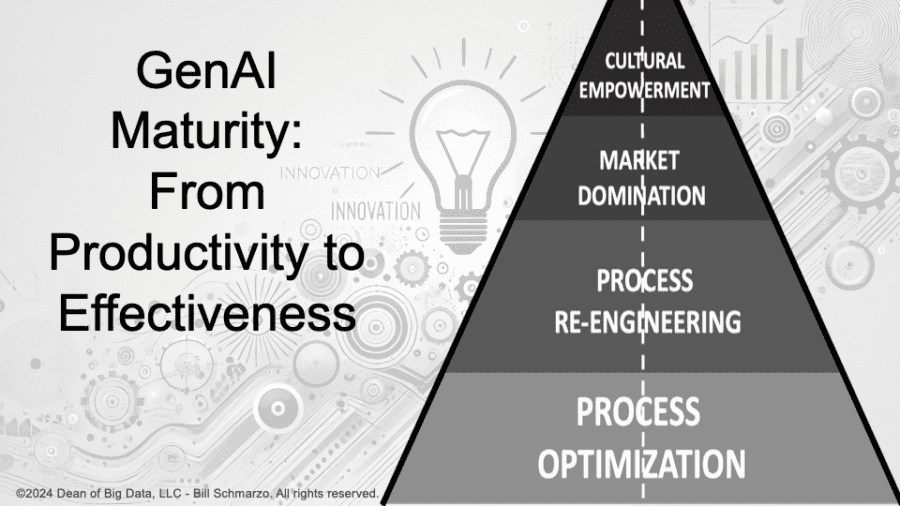by jsendak | Jun 30, 2024 | DS Articles
29 June 2024
I’m super-excited to announce a bumper Big Book of R update.
Quarto update
Firstly, you’ll see that the site has been updated from bookdown to Quarto. Not only does it give us a nice visual update, the search function seems to work a lot better, and I think splitting the navigation into chapters on the left-hand side and content on the right makes this type of content easier to navigate.
Because the site is programmatically generated, I knew that porting it over wouldn’t necessarily be a simple matter, so I reached out Fathom Data (a Data Science consultancy with whom I’ve worked for many years) and they jumped at the opportunity to help out the R community. I want to give the biggest thanks to Fathom Data for porting the book over, debugging and even doing the update to the cover image. A special thanks to Bianca, Kalonji and Leani who worked on this project. They did so with minimal input from side and given my busy schedule, made sure basically everything happened asynchronously, making great use of detailed notes and screen recordings to keep me updated and get my input.
Fathom Data have written up a short blog post for some behind-the-scenes insight. If you ever need some DS work done (whether its data science itself, data engineering, architecture work, web scraping or even team training), I highly recommend them.
New chapter: Psychology
When there are enough books to warrant a chapter, I make one. In this case, the new chapter is Psychology and it’s already got 7 entries!
7 new books
And now onto the addition of new books. Enjoy!
Principles of Psychological Assessment: With Applied Examples in R
This book highlights the principles of psychological assessment to help researchers and clinicians better develop, evaluate, administer, score, integrate, and interpret psychological assessments. It discusses psychometrics (reliability and validity), the assessment of various psychological domains (behavior, personality, intellectual functioning), various measurement methods (e.g., questionnaires, observations, interviews, biopsychological assessments, performance-based assessments), and emerging analytical frameworks to evaluate and improve assessment including: generalizability theory, structural equation modeling, item response theory, and signal detection theory. The text also discusses ethics, test bias, and cultural and individual diversity. The book provides practical data and analysis examples in R to help people better understand principles of psychological assessment and how to apply them. The book uses the freely available petersenlab package for R.
https://www.bigbookofr.com/chapters/psychology#principles-of-psychological-assessment-with-applied-examples-in-r
R Programming for Actuarial Science
Professional resource providing an introduction to R coding for actuarial and financial mathematics applications, with real-life examples
R Programming for Actuarial Science provides a grounding in R programming applied to the mathematical and statistical methods that are of relevance for actuarial work.
https://www.bigbookofr.com/chapters/field%20specific#r-programming-for-actuarial-science
R for Social Network Analysis
The goal of the book is to gather the most important topics in SNA in one place. “Important” is of course very subjective and it is not clear how to draw the line of what should be included and what not. We will start with the low hanging fruits, meaning repurposing our own material. That is, material from our workshops and courses (for instance what is already available here). This should cover the most generally relevant topics in SNA. Everything beyond that will be added over time as we (or the community!) deems necessary.
https://www.bigbookofr.com/chapters/network%20analysis#r-for-social-network-analysis
Customer Intelligence with R
Customer Intelligence with R’ (CI with R) is for learning the basic application of customer activation, development, retention, and segmentation (CADRS) with R. It is aimed to be educational outside of the academia.
https://www.bigbookofr.com/chapters/field%20specific#customer-intelligence-with-r
Applied Machine Learning for Tabular Data
We want to create a practical guide to developing quality predictive models from tabular data. We’ll publish materials here as we create them and welcome community contributions in the form of discussions, suggestions, and edits. The book takes a holistic view of the predictive modeling process and focuses on a few areas that are usually left out of similar works. For example, the effectiveness of the model can be driven by how the predictors are represented. Because of this, we tightly couple feature engineering methods with machine learning models. Also, quite a lot of work happens after we have determined our best model and created the final fit. These post-modeling activities are an important part of the model development process and will be described in detail.
https://www.bigbookofr.com/chapters/machine%20learning#applied-machine-learning-for-tabular-data
Programación práctica con R
Este es el sitio web para la versión en español de “Hands-On Programming with R” (en lo adelante “Programación Práctica con R”) de Garrett Grolemund. Este libro le enseñará cómo programar en R, con ejemplos prácticos. Fue escrito para personas que no son programadores con el objetivo de proporcionar una introducción amigable al lenguaje R. Aprenderá a cargar datos, ensamblar y desensamblar objetos de datos, navegar por el sistema de entorno de R, escribir sus propias funciones y utilizar todas las herramientas de programación de R. A lo largo del libro, utilizará sus nuevas habilidades para resolver problemas prácticos de ciencia de datos.
https://www.bigbookofr.com/chapters/espa%C3%B1ol#programaci%C3%B3n-pr%C3%A1ctica-con-r
R para principiantes
R para principiantes pretende ser un materal introductorio al lenguaje de programación R, dirigído a personas que nunca han usado R o ningún otro lenguaje de programación, ni tiene conocimiento previo de probabilidad y estadística.
Este libro tiene como propósito que adquieras los fundamentos del uso de R como un lenguaje de programación, desde sus conceptos más elementales, hasta la definición de funciones y generación de gráficos.
https://www.bigbookofr.com/chapters/espa%C3%B1ol#r-para-principiantes
Keep up to date with new Data posts and/or Big Book of R updates by signing up to my newsletter. Subscribers get a free copy of Project Management Fundamentals for Data Analysts worth $12.
Once you’ve subscribed, you’ll get a follow up email with a link to your free copy.
The post Big Update to Big Book of R (new look, new chapter, new books) appeared first on Oscar Baruffa.
Continue reading: Big Update to Big Book of R (new look, new chapter, new books)
Big Book of R Update: Broadening the Range of Data Science Knowledge
The Big Book of R, a continuously expanding resource for learning how to use the programming language R in multiple fields and from different perspectives, continues to thrive with its constant updates. The June 29, 2024 update is not only impressive in terms of content but also seen as a crucial move to enhance the ease of use for users.
Site Transformation: From Bookdown to Quarto
The first thing that jumps out in this update is the switch from Bookdown to Quarto for the site’s hosting. This was a calculated move to provide a better visual experience, improve the search function, and split navigation into separate sections for the site’s chapters and content.
The Helping Hand of Fathom Data
This transformation would not have been possible without the support of Fathom Data, a Data Science consultancy. Beyond just porting the book over to a new site, they handled debugging and gave the cover image an overhaul, thus reprising their role as reliable contributors to the R community.
Premiere of the Psychology Chapter
Such an update would not have been complete without additional books. A new chapter titled “Psychology” was introduced, further expanding the Big Book of R’s scope and giving the readers more subject-specific material to dive into.
New Material in the Form of Seven Books
Seven new books were included in this update, enriching the learning experience provided by the Big Book of R. The fields covered range from psychological assessment, actuarial science, social network analysis, customer intelligence, machine learning for tabular data, practical R programming, and a beginner’s guide to R. All the additions promise to strengthen the understanding and competency of readers in the diverse fields of data science.
Implications and Future Developments
This transformative update is a testimony to the Big Book of R’s dedication to providing a comprehensive resource for the R community and data science aficionados. By incorporating new books into the mix, the Big Book of R continues to sit at the intersection of programming and several varied fields, from actuarial science to psychology.
The long-term implications of this update promise to be beneficial, especially for those seeking to expand their knowledge in data science across multiple disciplines. The switch to Quarto and the additional subject matter will undoubtedly lead to more users engaging with the platform, ultimately fostering a more knowledgeable and skilled R community.
Given the trend of this update, future developments with the Big Book of R may include expanding into other disciplines that can better utilize the R programming language. Simultaneously, site optimization efforts are likely to continue, enhancing accessibility and ease of use. More partnerships with entities like Fathom Data could also be in the pipeline to provide continuous improvements and updates.
Actionable Advice
For individuals or organizations working with R, it would be beneficial to regularly check on the Big Book of R for its newest content updates. This will ensure they stay up-to-date with the latest practices and strategies in their field.
Given the Big Book of R’s open-ended nature for improvements and additions, it might be worthwhile for experts in their respective fields to contribute their knowledge and experience. They could pursue partnerships similar to Fathom Data’s, providing valuable insights for the R community and refining the way the Big Book of R can provide the best possible learning experience.
Lastly, supporting platforms like the Big Book of R helps cultivate an environment where data science knowledge can freely circulate, fostering a more competent and enlightened community of R programmers and data scientists.
Read the original article

by jsendak | Jun 30, 2024 | DS Articles
Is data cleaning too time-consuming and frustrating for you? Try Pyjanitor to enhance your data cleaning skills.
The Long-Term Implications and Possible Future Developments of Pyjanitor on Data Cleaning
The use of sophisticated tools such as Pyjanitor to enhance data cleaning skills has numerous long-term implications and possible future developments. With the increasing importance of data in various fields, efficient data cleaning becomes more significant. The manual approach, which is usually time-consuming and frustrating, might not be enough to meet the increasing need for data cleaning. Implementing tools like Pyjanitor can revolutionize the process for many users.
The Long-Term Implications
By making the data cleaning process more efficient, we’re more likely to see an increase in data-driven decisions across different sectors. Organisations will be able to handle more data, and can thus make better-informed decisions. This could ultimately lead to improvements in a wide range of areas, from business strategy to scientific research.
For professionals who handle data, the ability to quickly clean and analyze data can increase productivity. It could also make these professions more appealing, potentially leading to an increase in the number of data scientists and data analysts in the workforce.
Possible Future Developments
There are already promising signs that cleaning tools like Pyjanitor will continue to evolve. As the demand for data cleaning increases, we can anticipate new features and improvements. We may also see more collaboration between tool developers and users, leading to tools that are more responsive to users’ needs.
Tools like Pyjanitor have the potential to revolutionize the way we go about handling data.
Actionable Advice
- Invest in Learning: If you work with data, now is the perfect time to learn how to use Pyjanitor or other data cleaning tools. Developing these skills could make you more productive and valuable in the workplace.
- Stay Updated: Keep track of the latest developments in data cleaning tools. This will help you take advantage of new features and enhancements as they become available.
- Collaborate: If you notice features that could improve the data cleaning process, don’t hesitate to share your thoughts with the developers. This could help shape the future of data cleaning tools like Pyjanitor.
In conclusion, Pyjanitor and similar tools are shaking up the world of data cleaning in a big way. By staying informed and continuously improving our skills, we can make the most of these changes and contribute to their ongoing development.
Read the original article

by jsendak | Jun 30, 2024 | DS Articles

As I work with more organizations using Generative AI (GenAI) tools like OpenAI’s ChatGPT and Microsoft’s Copilot, I see an interesting dilemma – many organizations seem satisfied with settling for productivity improvements and “taking costs out of the operations” (reminds me as to why companies went to the cloud). And while GenAI tools can indeed… Read More »GenAI Maturity: From Productivity To Effectiveness
Key Points Analysis
The text discusses the use of Generative AI (GenAI) tools such as OpenAI’s ChatGPT and Microsoft’s Copilot within various organizations. A key issue outlined is that many organizations are simply content with using these tools to enhance their productivity and reduce operational costs. This is reminiscent of the reasons most companies migrated to cloud-based services.
Long-term Implications and Potential Future Developments
Long-term Implications
The widespread adoption of GenAI tools has the potential to reshape business operations on a global scale. However, their use is not without potential complications. The issue of over-reliance on these tools could potentially lead to reduced innovation and creativity within organizations that solely focus on productivity improvement and cost reduction.
Potential Future Developments
In the future, we could see a shift in utilization of GenAI tools from merely enhancing productivity to driving innovative solutions and effectiveness within organizations. In addition, we are likely to witness more advanced AI tools that offer even more capabilities, ultimately changing the face of business operations and potentially even customer-facing roles.
Actionable Advice
- Look Beyond Cost Reduction: While GenAI tools can undoubtedly help automate tasks and save costs, organizations should also leverage these technologies to innovate and make their operations more effective.
- Continuous Training: As AI evolves, continuous training and development will be needed to keep stakeholders updated on the latest features and capabilities of these tools.
- Invest in Research: Companies should invest in researching the potential applications of GenAI to uncover new ways the technology can be used to enhance business operations.
Conclusion
In conclusion, while GenAI tools provide significant benefits in terms of cost reduction and productivity, their potential extends far beyond. Organizations need to adopt a more forward-thinking approach and leverage these tools for innovation and creating more effective business solutions.
Read the original article

by jsendak | Jun 30, 2024 | News
Exploring New Paths: French Elections and the Quest for Change

French voters are heading to the polls once again, driven by President Emmanuel Macron’s unexpected call for parliamentary elections. This bold move has ignited hope and excitement among the citizens, who eagerly anticipate the potential for a new course to be set. As the nation embarks on this significant journey, it is crucial to examine the underlying themes and concepts that have shaped France’s political landscape, while proposing innovative solutions and ideas to address pressing issues.
Breaking the Chains of Tradition
Over the years, France has been known for its strong political traditions, often leading to a sense of stagnation and resistance to change. President Macron’s decision to call for early parliamentary elections challenges these traditions and is a testament to his determination to break free from the status quo. This audacious move opens up a world of possibilities, offering the potential for fresh ideas and perspectives to shape the future of France.
With this newfound freedom, it is crucial for political leaders to seize the opportunity and embrace innovative solutions. The challenges facing France are multifaceted, ranging from economic issues to social inequalities. By fostering an environment where new ideas can flourish, leaders have the chance to reimagine policies and implement creative solutions that address these pressing concerns.
A Collaborative Approach to Governance

Another vital concept that this election presents is the importance of collaboration and unity. Oftentimes, divisive politics hinder progress and cloud the path to effective governance. The upcoming elections offer a chance to bridge ideological divides and encourage a more inclusive political landscape.
By fostering an environment of active dialogue and cooperation, leaders can work together to find common ground and devise policies that benefit all citizens. This approach allows for the pooling of diverse perspectives and expertise, leading to well-rounded solutions that cater to the needs of a broad spectrum of the population.
Fueling Innovation and Embracing Change
The French elections provide an unparalleled opportunity to fuel innovation and embrace change, transforming the nation into a hub of progress. From technological advancements to sustainable development, France has the potential to lead the way in various fields that shape the future.

Leaders should prioritize investment in research and development, supporting local entrepreneurs and promoting initiatives that foster creativity. By doing so, France can attract top talent, stimulate economic growth, and position itself as a beacon of innovation.
Nurturing Civic Engagement
A thriving democracy rests upon the active participation of its citizens. The French elections present an ideal moment to nurture civic engagement and strengthen the bonds between the people and their government.
Efforts should be made to empower individuals, particularly the younger generation, to get involved in the political process. Providing accessible platforms for dialogue, encouraging community outreach programs, and promoting civic education are essential steps towards fostering an engaged and informed citizenry.
As the French elections unfold, the nation stands at a crossroad. The decisions made in the coming weeks will shape the trajectory of France for years to come. By challenging convention, embracing collaboration, fueling innovation, and nurturing civic engagement, French leaders can pave the way for a brighter and more prosperous future. The time for change has come, and with it, the potential for a new era of progress and transformation.
Read the original article

 arXiv:2406.18701v1 Announce Type: cross Abstract: In this paper, we present the Fast Optimizer Benchmark (FOB), a tool designed for evaluating deep learning optimizers during their development. The benchmark supports tasks from multiple domains such as computer vision, natural language processing, and graph learning. The focus is on convenient usage, featuring human-readable YAML configurations, SLURM integration, and plotting utilities. FOB can be used together with existing hyperparameter optimization (HPO) tools as it handles training and resuming of runs. The modular design enables integration into custom pipelines, using it simply as a collection of tasks. We showcase an optimizer comparison as a usage example of our tool. FOB can be found on GitHub: https://github.com/automl/FOB.
arXiv:2406.18701v1 Announce Type: cross Abstract: In this paper, we present the Fast Optimizer Benchmark (FOB), a tool designed for evaluating deep learning optimizers during their development. The benchmark supports tasks from multiple domains such as computer vision, natural language processing, and graph learning. The focus is on convenient usage, featuring human-readable YAML configurations, SLURM integration, and plotting utilities. FOB can be used together with existing hyperparameter optimization (HPO) tools as it handles training and resuming of runs. The modular design enables integration into custom pipelines, using it simply as a collection of tasks. We showcase an optimizer comparison as a usage example of our tool. FOB can be found on GitHub: https://github.com/automl/FOB.





